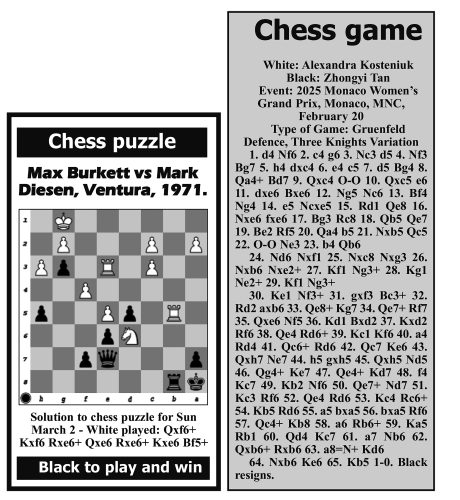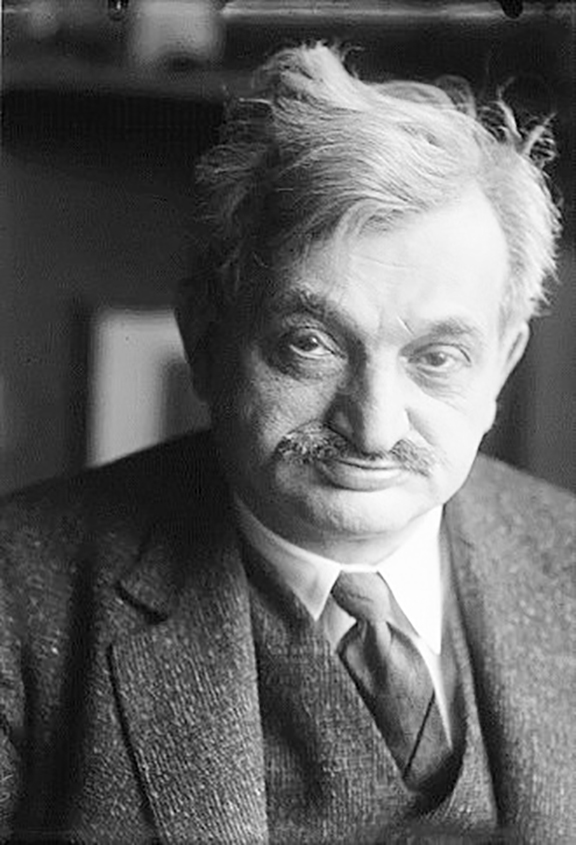 Many of the chess games which I have replayed were decided in the middle game; either from material advantages, passed pawns, successful combinations or unimaginative blunders. In chess literature there have been many prolific middle-game players. For Guyanese, one of the most outstanding was the school teacher Maurice Broomes. Before my time there was H O E Barker, English-speaking Caribbean champion. Both were dynamic middle gamers. Currently, there is Loris Nathoo who emerges sometimes with a few robust and crushing combinations.
Many of the chess games which I have replayed were decided in the middle game; either from material advantages, passed pawns, successful combinations or unimaginative blunders. In chess literature there have been many prolific middle-game players. For Guyanese, one of the most outstanding was the school teacher Maurice Broomes. Before my time there was H O E Barker, English-speaking Caribbean champion. Both were dynamic middle gamers. Currently, there is Loris Nathoo who emerges sometimes with a few robust and crushing combinations.
Internationally there were and are a few players who unleashed lethal combinations which made headlines and made them famous. They were world champs Emanuel Lasker of Germany, Russia’s Alexander Alekhine, Mikhail Tal, and Garry Kasparov and America’s Bobby Fischer. There are many others but today I will briefly feature Lasker.
 Lasker ( 1868-1941 ) was the second world chess champion. He was 25 when he took the championship from Wilhelm Steinitz of Prague. Lasker appeared as if from nowhere and was world champion for 27 years, a record yet to be broken. He represented modern chess that was to prove demonstrably superior to anything that had gone before. He lost the world title to Cuba’s Jose Raul Capablanca in 1921.
Lasker ( 1868-1941 ) was the second world chess champion. He was 25 when he took the championship from Wilhelm Steinitz of Prague. Lasker appeared as if from nowhere and was world champion for 27 years, a record yet to be broken. He represented modern chess that was to prove demonstrably superior to anything that had gone before. He lost the world title to Cuba’s Jose Raul Capablanca in 1921.
The chess of yesteryear, before Lasker, was referred to as romantic chess. It was filled with sacrifices and at various times, unsound combinations. But it was exciting to follow and pleasing to the eye. Then Lasker entered the arena. His chess was dull, unenterprising, and laboured. His peers criticized him for going too slow but he got the results he desired. Lasker opposed, successfully at times, the great players of yesteryear in tournaments – Alekhine, Capablanca, Frank Marshall, Siegbert Tarrasch, Mikhail Botvinnik etc.
One is reminded of the great St Petersburg tournament of 1914 which Lasker won and where Czar Nicholas 11 named five “grandmasters of chess”, the very first time the phrase was coined. Czar Nicholas named Lasker the first grandmaster of chess. Though Lasker is remembered for his games, in addition to him being a mathematician and a philosopher, he was also a serious card player and a poet. He will forever be remembered for his famous quotations. One reads: “When you see a good move, look for a better one.”









